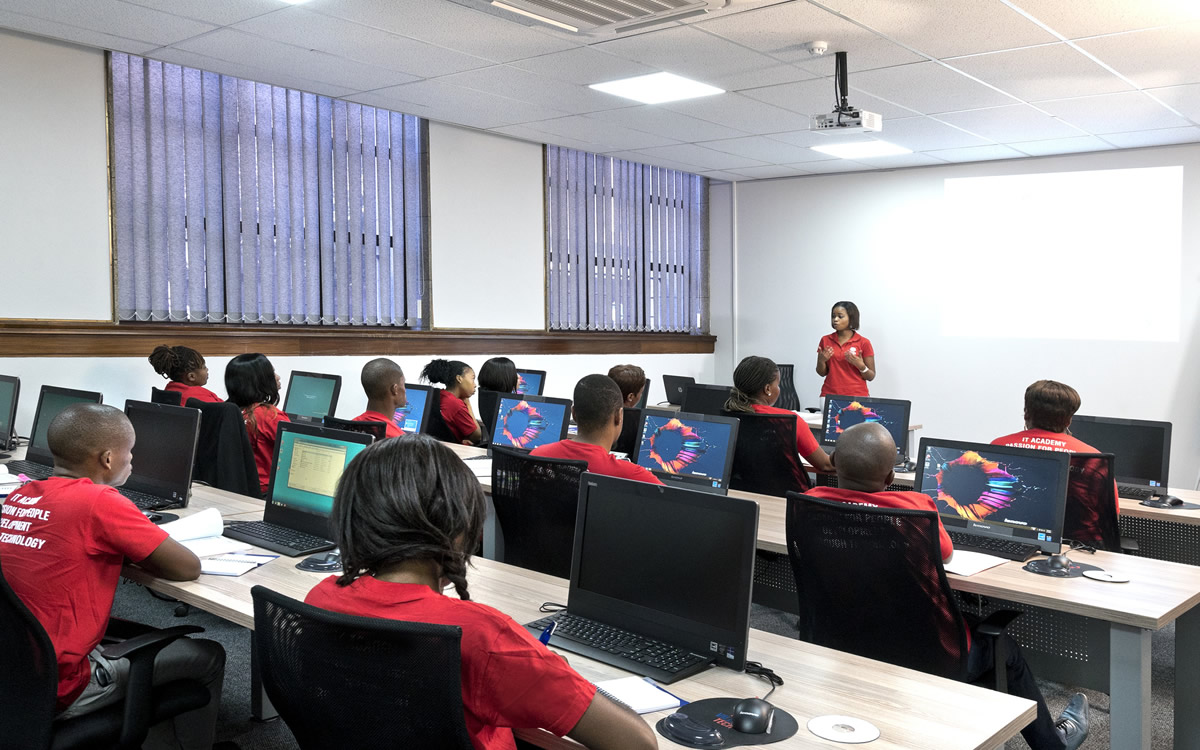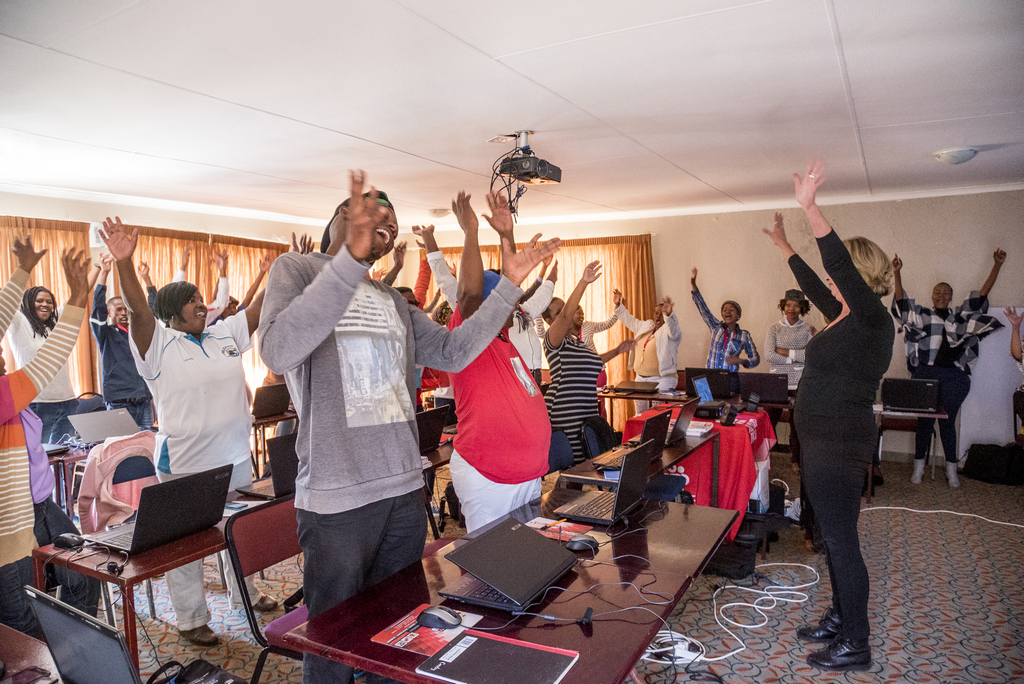
Technology training to reduce the digital divide between the under-resourced schools in both rural and non-rural communities is essential for South Africa’s workforce of tomorrow.
This have become even more urgent and the disparities even more glaring following the onset of the COVID-19 pandemic. Left unchecked the digital divide is going to grow even wider.
Empowering educators through technology training
The best place to start in reducing the digital divide, I believe is to be found in the empowerment of the educator.
This is because teachers do not only teach but they command huge respect from their learners and play a critical role in shaping the future workforce. A teacher that is empowered with ICT skills is also likely to be passionate about people development through technology, which is the bedrock of tomorrow’s development.

Considering the impact teachers have on children and youth, it is our desire and trust that they be fully technologically equipped to deal with the ever changing classroom.
According to Tatenda Zingoni, Senior Researcher at Birguid, “Educational technology is the combined use of computer hardware, software, and educational theory and practice to facilitate learning.”
Sadly, in many South African classrooms this has not yet been realised.
A shortage of teachers
According to NPO, Teach with Africa, teacher shortage is at the heart of South Africa’s education challenges.
We do not have nearly enough new teachers coming into the field and, of those who do, ICT skills, and the severe shortage of teachers with critical subject competencies such as maths and science, make the situation even dire.
In short, technology training in a field that is already short of sufficient educators has made this matter more urgent than ever.
If we focus on one subject alone – mathematics – we can see the issue more clearly.

Between 2015 and 2019, the number of high school learners taking mathematics dropped by 16%. The shortage of teachers in the STEM (Science, Technology, Engineering and Mathematics) subjects combined with the low ICT penetration in the classroom is a contributing factor to this decline.
The result is South Africa performing poorly in mathematics education, knowledge and understanding with fewer matriculants passing the subject each year. This could have easily been made easier with the employment of technology and technology training in the classroom, which among other things will make it possible to optimally use the scarce STEM resources to reach as many learners as is possible- especially those in the township and rural communities.
Coding and robotics to be introduced to CAPS curriculum
With the Department of Basic Education announcing earlier this year the plan to introduce coding and robotics to the CAPS curriculum, there are further opportunities to drastically improve teacher development especially in the use of ICTs by implementing technology training.
The pandemic demonstrated the vast difference in response to a changing learning landscape between schools in the highest and lowest quintiles. While some schools were able to immediately implement e-learning systems, others struggled to simply get classwork printed and distributed to their learners- further emphasising the importance of teaching with technology.
It is no longer enough for teachers to simply have a qualification; they have to incorporate technology into their teaching practice.
Expertise in their particular subject has to be augmented with technology training as the new pinnacle of creating well-rounded educators.
I also believe that technology training can help teachers be more productive, as it allows for more personalisation of lessons. It can also enhance communication between teachers and their learners and create more opportunities for collaboration.
Introducing coding and robotics to the curriculum will require teachers who are competent in these subjects and there is a long way to go to achieve that, when many might not know how to correctly use standard computer programs, send an email or create a digital presentation for teaching. To level the playing field, we have to empower our teachers with the requisite ICT competencies and soon.
To their credit though, many teachers quickly adapted during the pandemic and learnt how to use virtual meeting platforms, created WhatsApp groups to distribute lessons they filmed on their phones and used social media to reach learners who needed to access their lessons through different platforms.
If they are so willing to find solutions under the most trying circumstances, why not give them the help and the support they need for the future classrooms?
Conclusion
The benefits of technology training for teachers include better response and academic performance from learners, potentially sparking their interest in other STEM subjects, discovering future tech whizzes whose aptitude is met with proper exposure and education, even in the most resource-strapped communities, and nurturing a generation of youth who can ensure South Africa competes on a global level to open opportunities for greater investment in tech-related sectors.
Now is the time for private sector organisations, Government Departments and educational institutions to build effective partnerships that put the focus firmly on preparing teachers for a digital world.
Collaboration may present solutions for funding challenges and rollout of training initiatives as well as supply of the necessary equipment to lower quintile schools.
As the saying goes, “many hands make light work” and this is certainly the case to lift a heavy burden upon the education system.
It is true that not addressing this issue means we have much to lose. But, we have even more to gain by focusing on the preparedness of our educators.
We expect the highest standards of our Healthcare workers, our Law Professionals, our Engineers, and our Financial Services Professionals. We must have that same level of concern and willingness to support the continuous empowerment and Educator Development in line with the fast changing teaching and learning environment.
Technology is changing our present, our everyday life and our future. So, let us make sure it positively changes the prospects for our educators and ultimately, our learners.